Saline Agriculture for Climate Adaptation
Project Location
Malawi, Chikwawa
Socio-economic and Environmental Context
Soil Erosion / Salinisation / Drought / Saline Groundwater / Crop production
Objectives
+ Utilisation of saline boreholes and the surrounding land for crop production
+ Development of integrated saline vegetable farms and sustainable Silvo-aquaculture system
Benefits
+ Ecosystem conservation & reforestation
+ Resilience for communities during dry season
+ Alternative sources of livelihood
+ Climate mitigation
+ Sustainable sources of animal feed and vegetable agriculture
Seawater Solutions Role
Development of saline agriculture using saline groundwater.
Challenges Malawi Role
Business case and socio-economic and gender analysis.
www.thechallengesgroup.com
If you have questions or want to learn more about our operations here in Chikwawa, you can get in touch with chris@seawatersolutions.org or info@seawatersolutions.org.
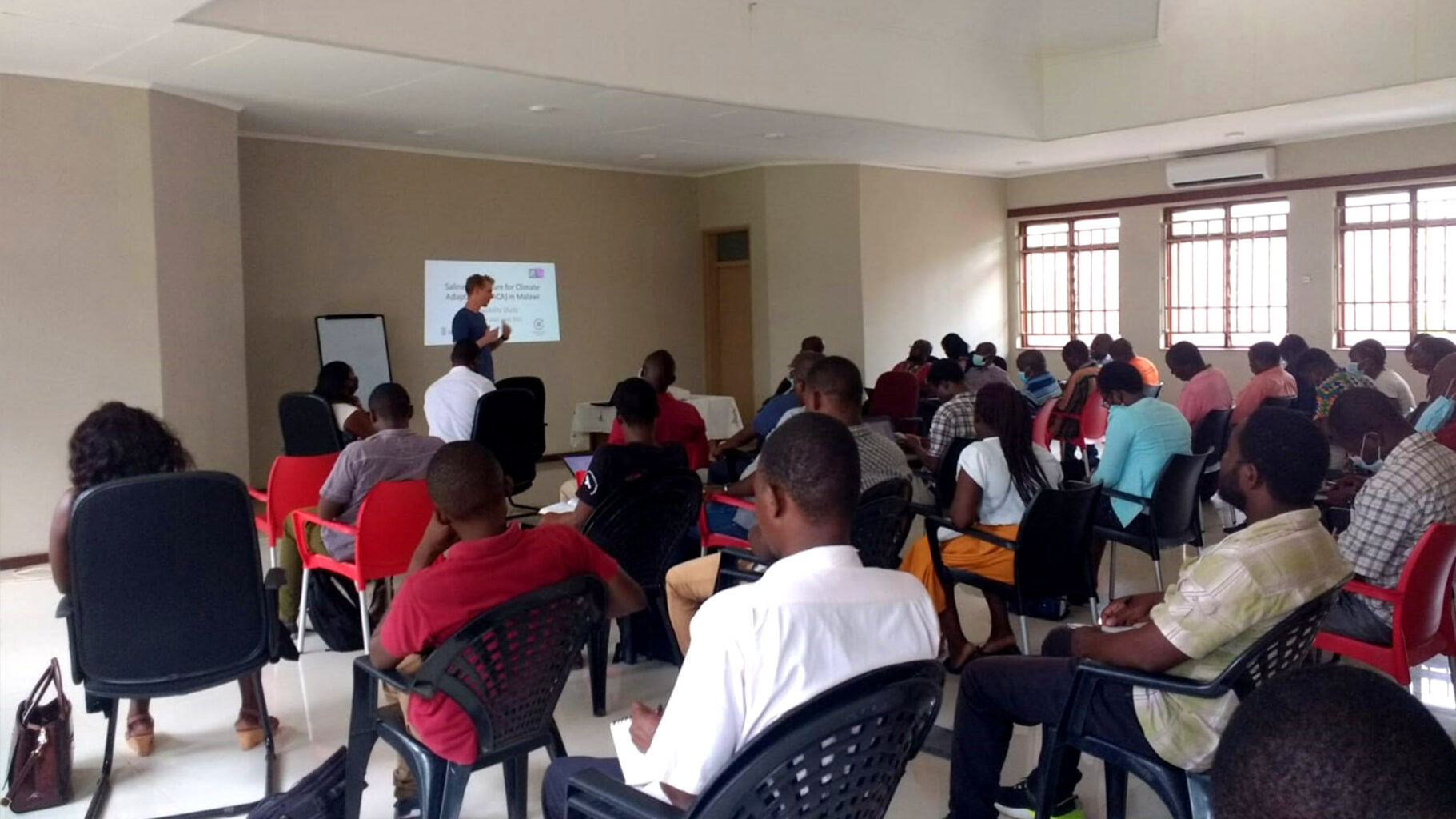
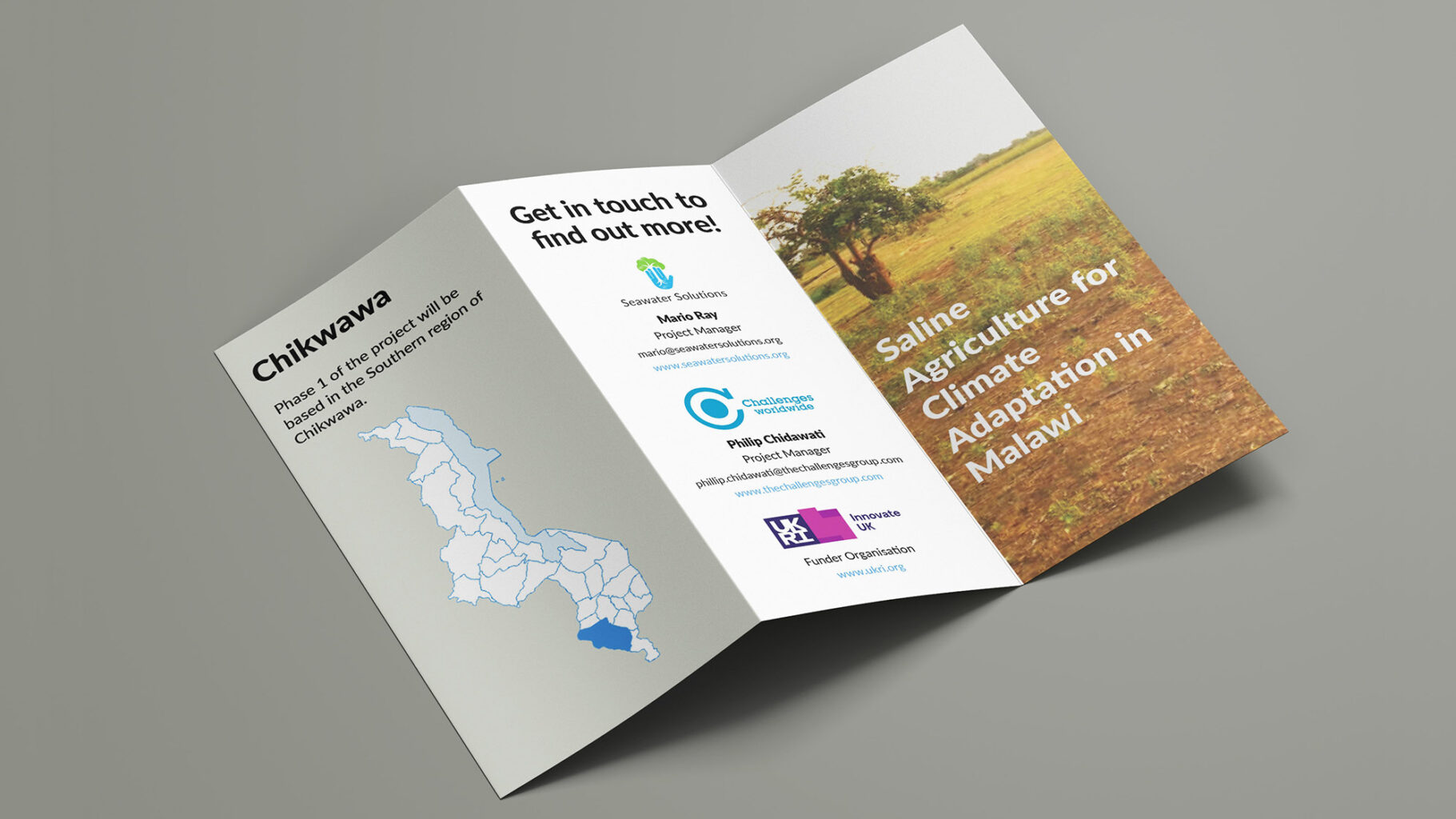
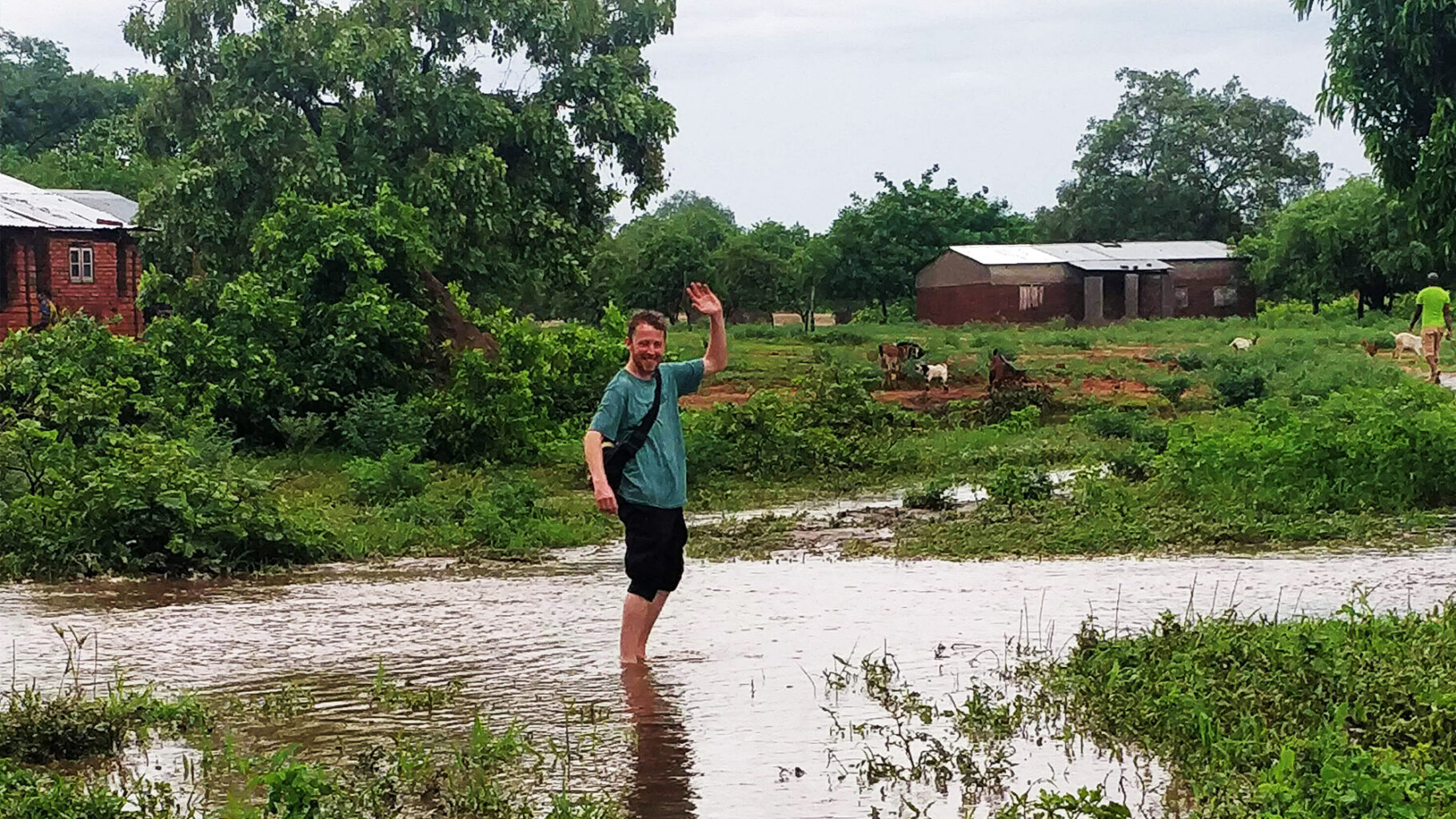
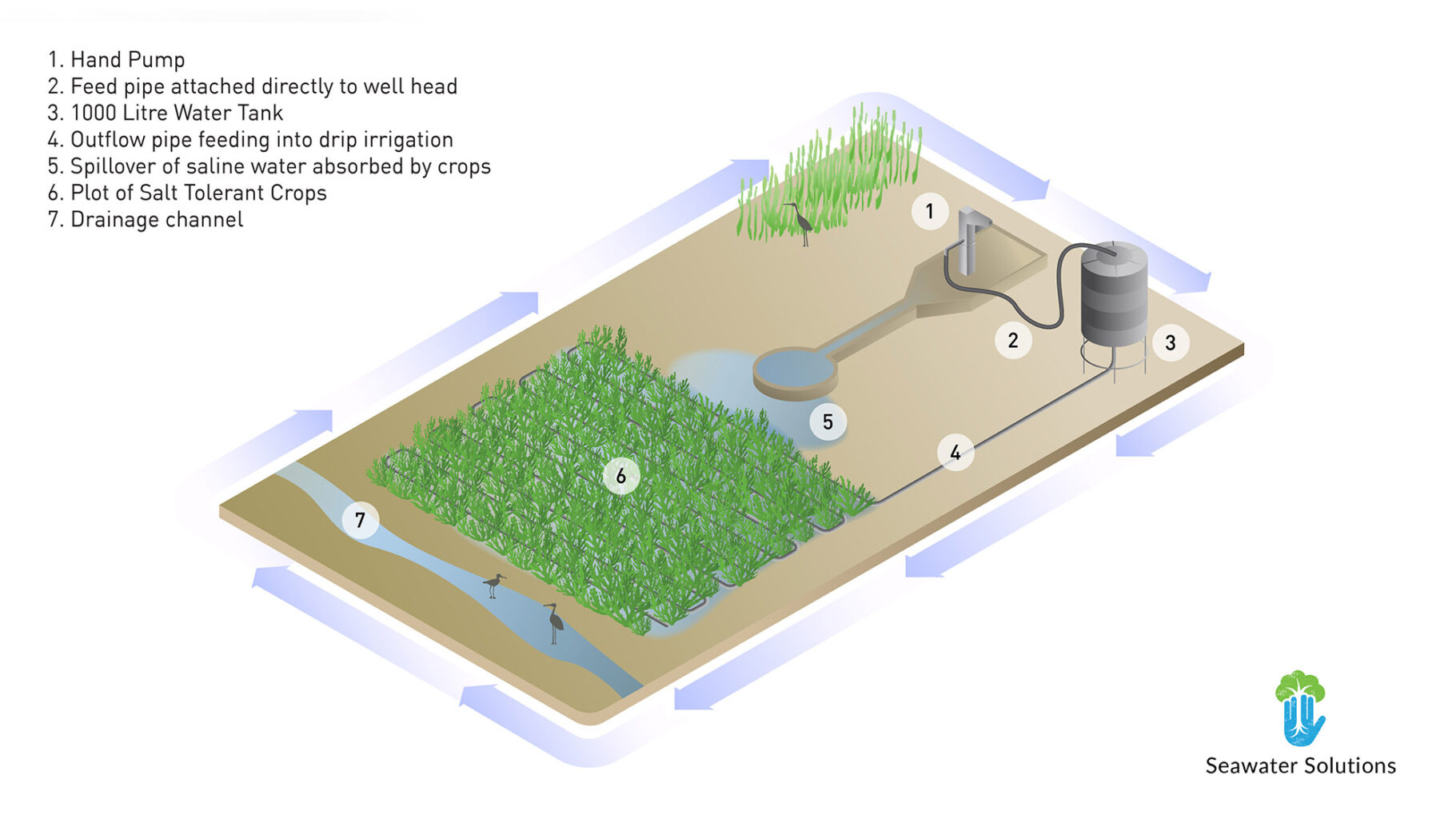
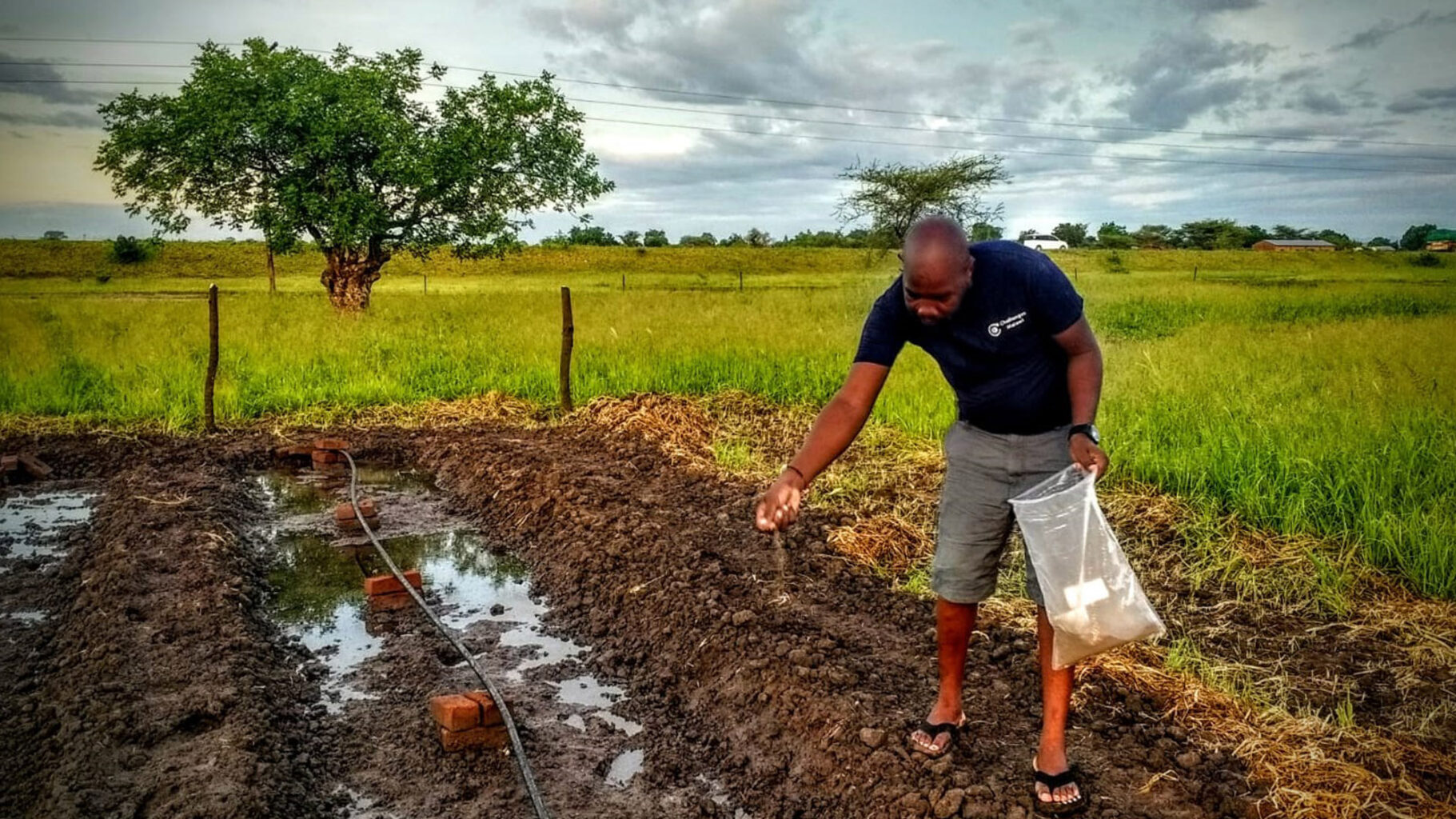
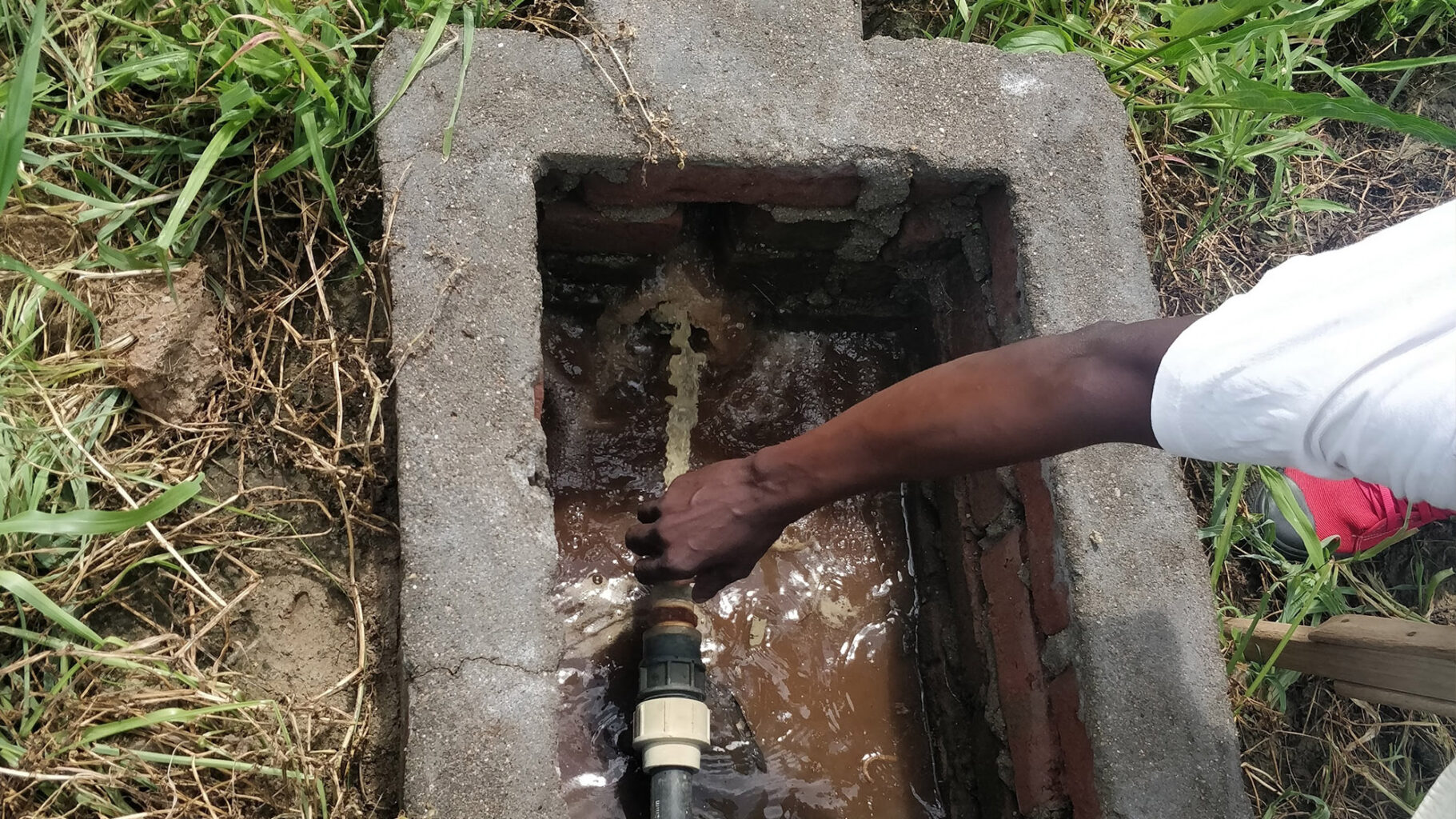
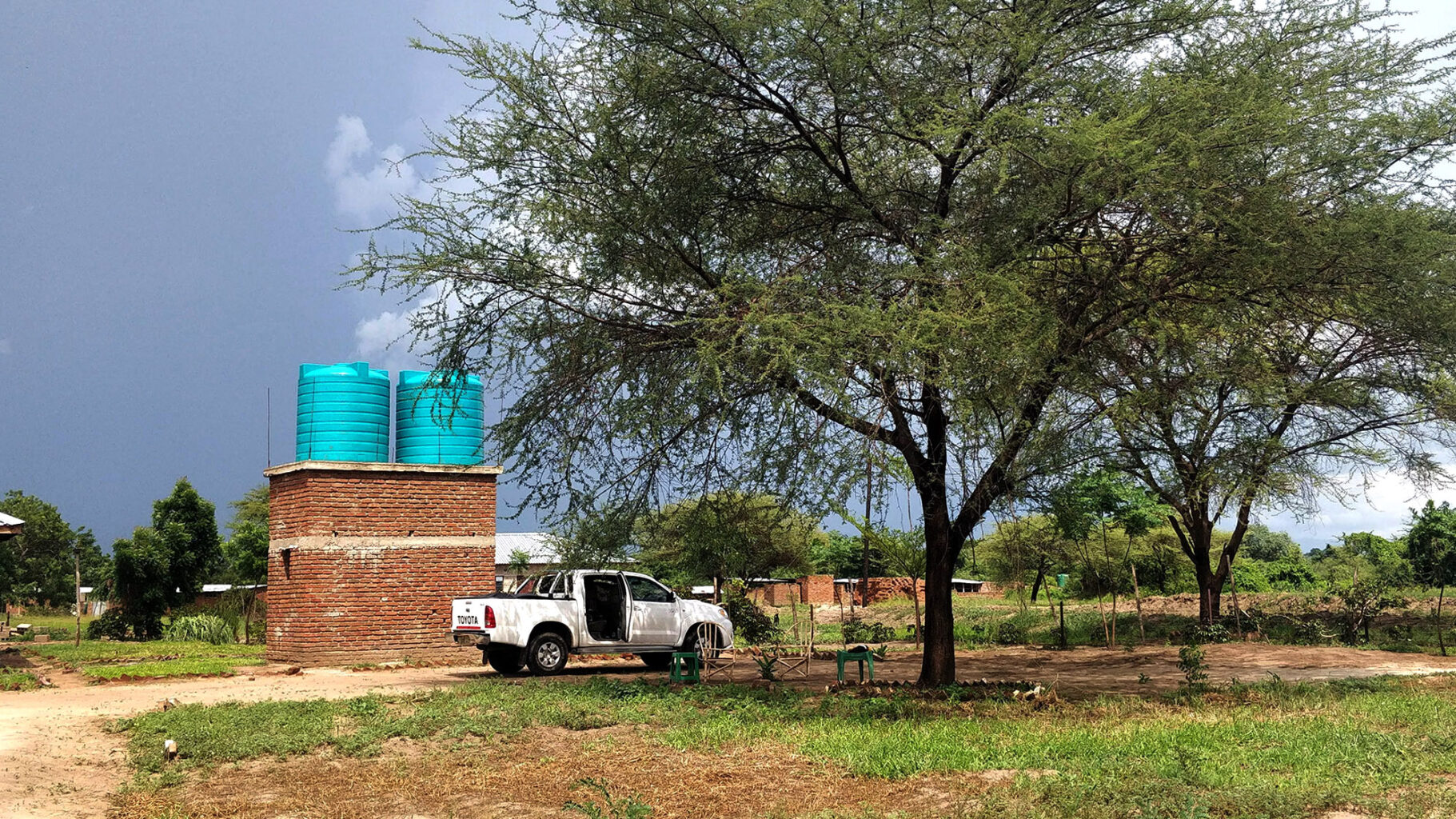
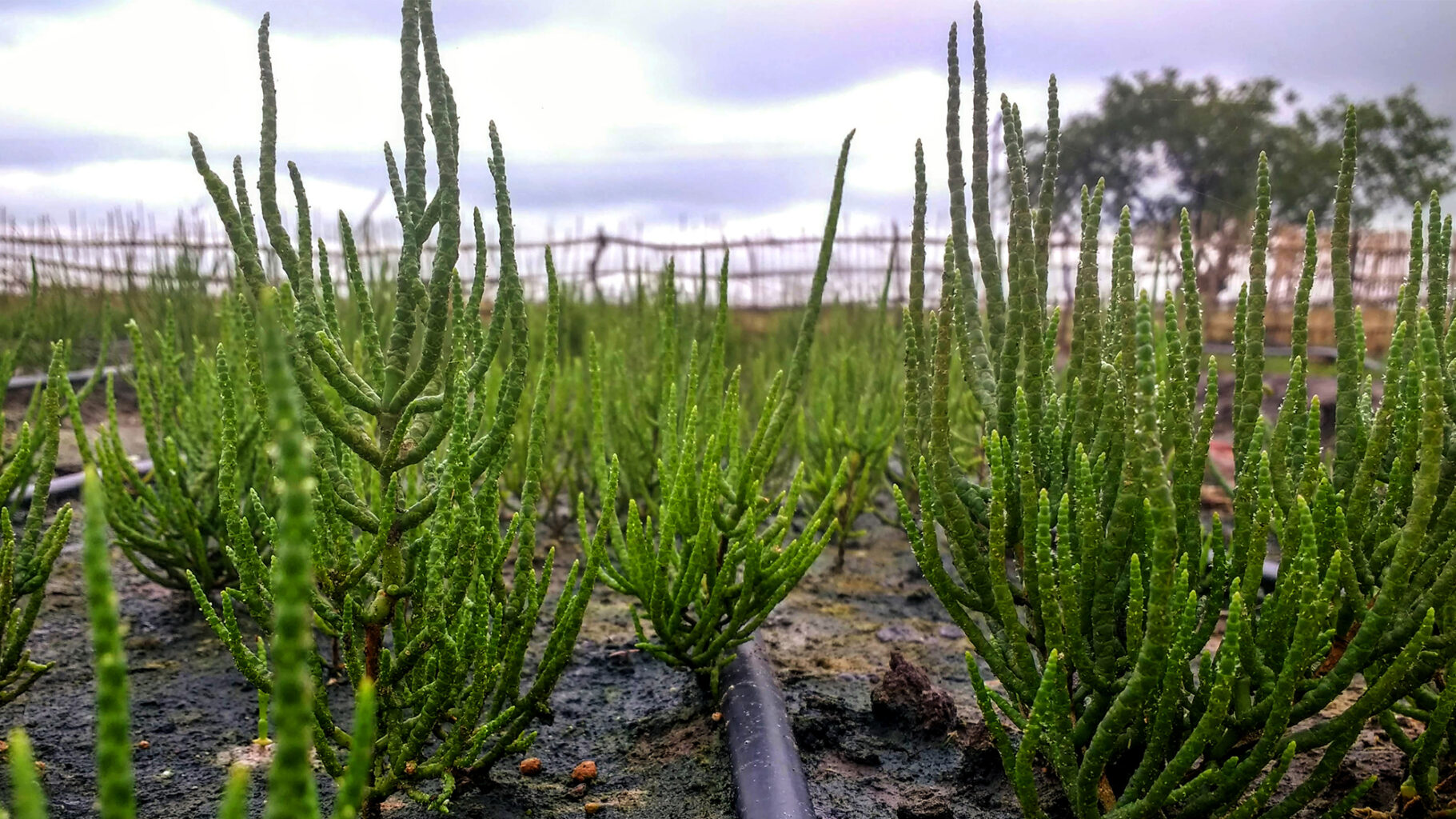
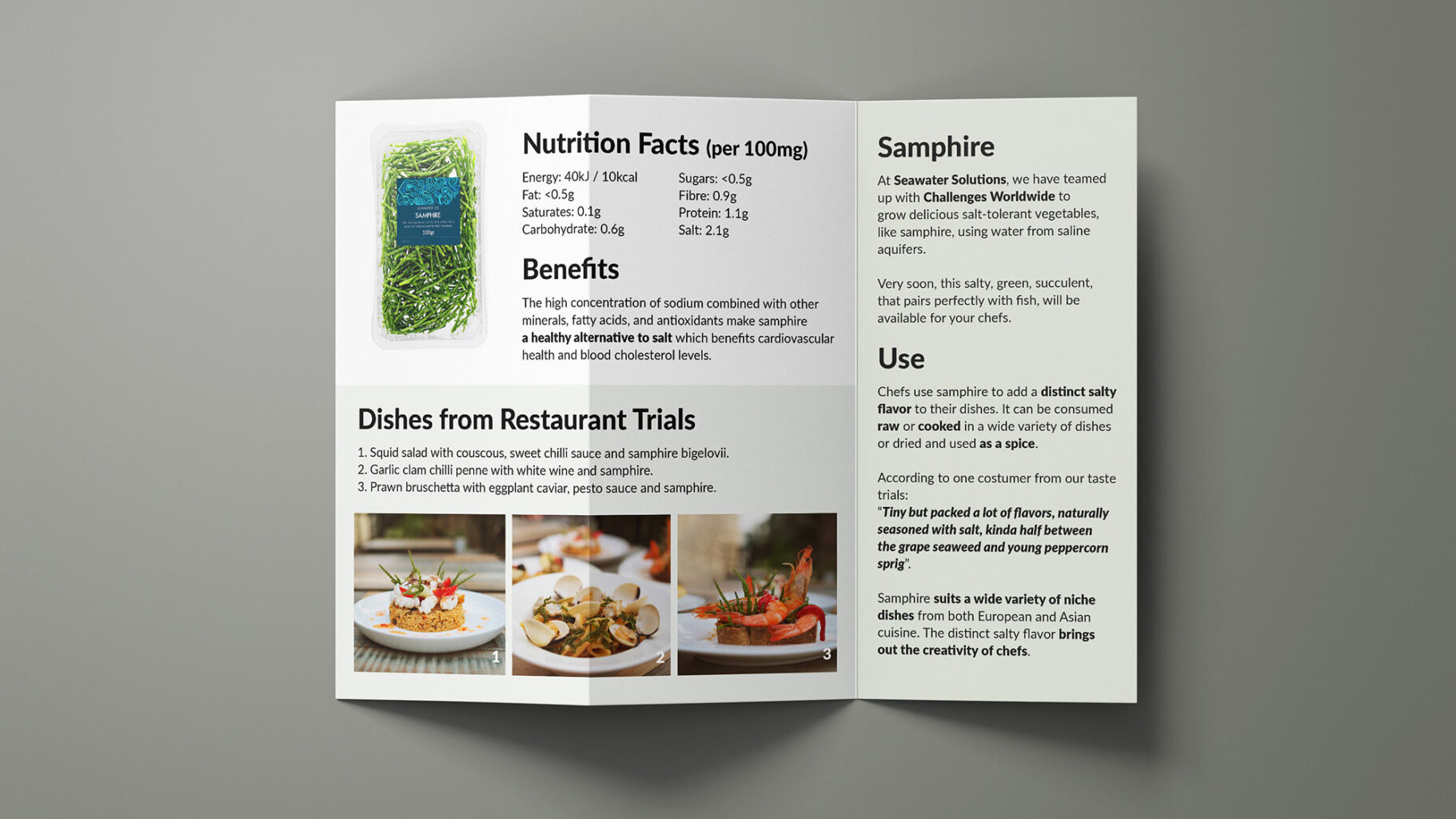
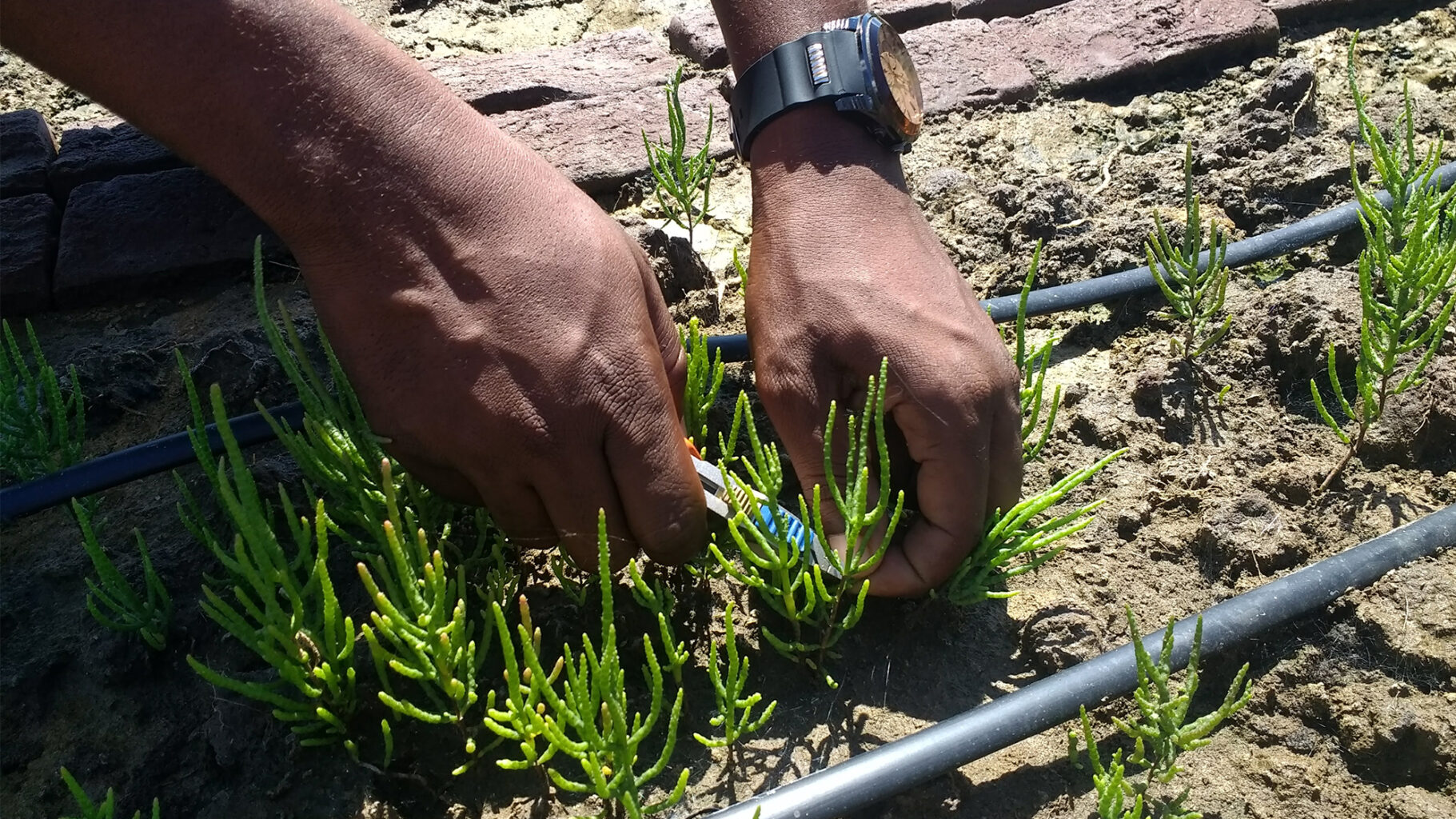
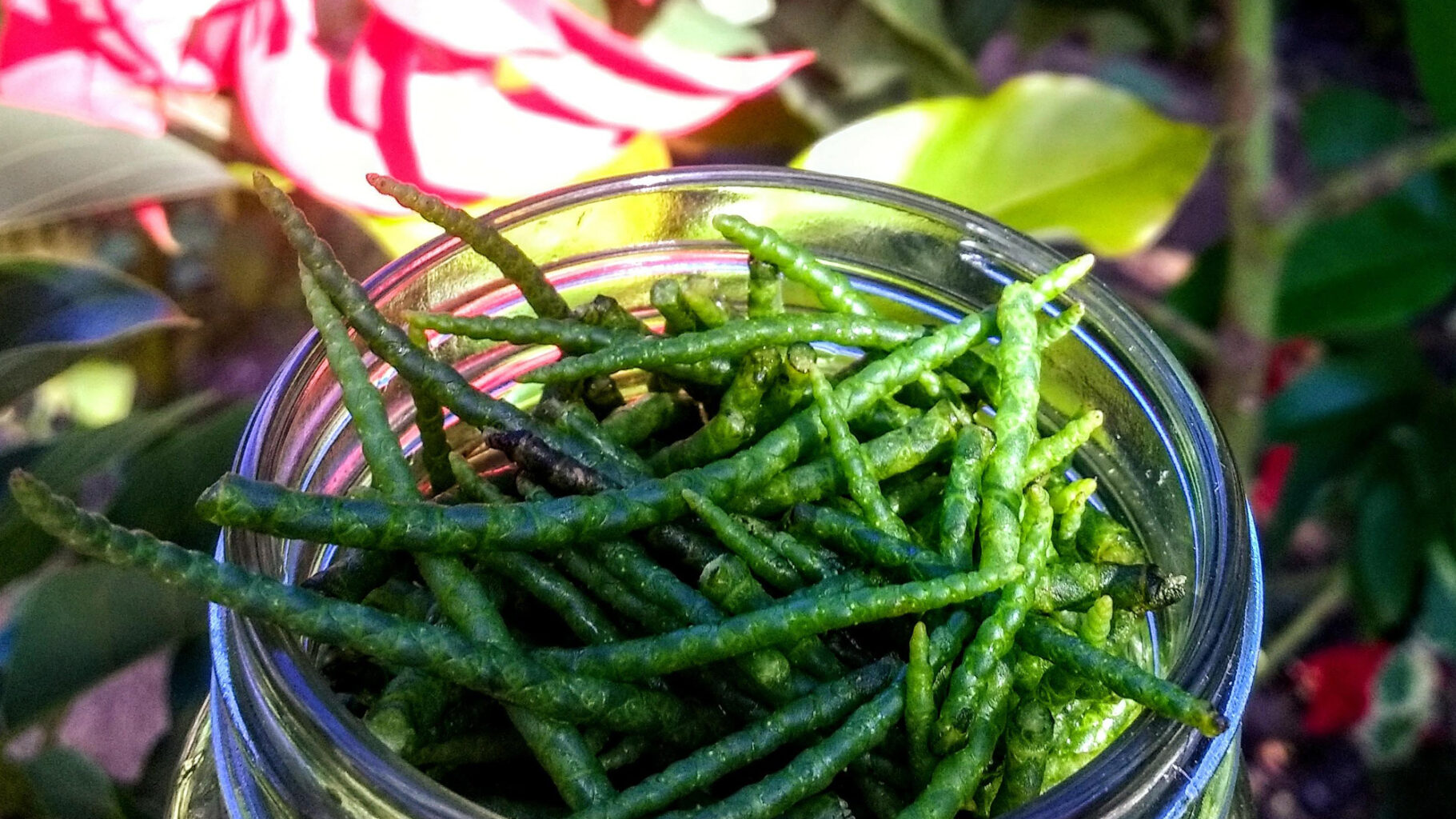
Project Description
For rural communities in Malawi land degradation and the impacts of climate change and natural hazards are key livelihood challenges. The region of Chikwawa is especially prone to environmental strains as it is dryer, lower, and more arid than other regions of the country. Salinity in groundwater and soils threatens the region’s already strained arable land resources and vegetation.
This project will use saline wells to irrigate fields to grow salt tolerant vegetables and supply aquaculture ponds to grow fish. Our innovation restores degraded land, turning salinized soils into highly profitable and healthy ecosystems without using any freshwater. We do this by using saline groundwater from traditional wells and modern boreholes which have become saline over time, or those that have been dug into deposits of saline water. While these ‘saline wells’ may no longer be in use, due to their high salinity levels, this project uses them to build ecosystems-based saltwater farms in which nutritious crops and aquaculture are combined in circular production models.
Saline Agriculture for Climate Adaptation (SACA) in Malawi follows on from projects led by the team in the last two years in countries like Bangladesh and Vietnam which addresses similar threats, and implements innovative land management practices for the integrated restoration of saline wells to restore degraded land, and create invaluable ecosystems that strengthen the climate resilience of rural communities.
This project brings together Challenges Worldwide and Seawater Solutions in a new partnership. Challenges have supported more than 3,000 enterprises, encouraging the development of SME-centred products and services and their work in Malawi includes establishing commercial hubs to better balance supply chains and improve farmers’ conditions.
Project Sites
Chonona Fishery
Chonona is a small fishery 4.5 miles south of Chikwawa of about 4ha in size. The site contains a borehole which when drilled was discovered to be salty. Previously the owners had attempted to grow vegetables on the land using this water, however due to the high salt content the crops did not survive and the land has since sat idle. Also on the site are 9 fish ponds, most of which are sustained by the nearby river water, however some draw water from the borehole and produce salt tolerant fish species. This project aims to reclaim the agriculture land using the saline water onsite as well as integrate the aquaculture system, using nutrient rich wastewater to fertilise the crops grown onsite.
Socio-economic and Environmental Context
Desertification / Salinisation / Youth Unemployment / Gender Inequality
Objectives
+ Identify specific villages/farms/areas with wells containing saline water
+ Develop agriculture system using existing saline boreholes
+ Conduct market research and address gender issues
+ Create saline agriculture farms
+ Integrate aquaculture facilities
Expected Outcomes
+ Fresh vegetables grown using zero freshwater
+ A product which can be sold to markets as a vegetable or processed into feed for livestock and fish
+ Increased employment within local communities
+ Defence against soil erosion in underutilised, drought prone areas
+ The utilisation of previously abandoned boreholes and the surrounding land into profitable healthy soils
Seawater Solutions Role
Developing agriculture and aquaculture sites
Establish a market for the crop